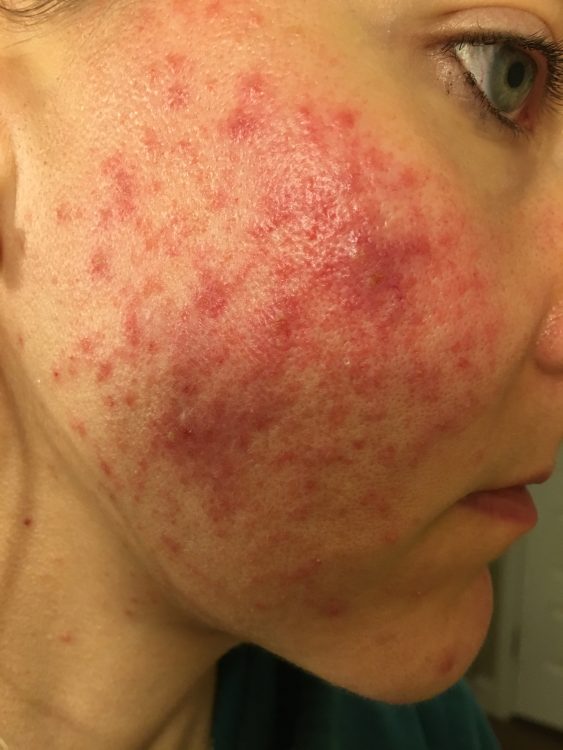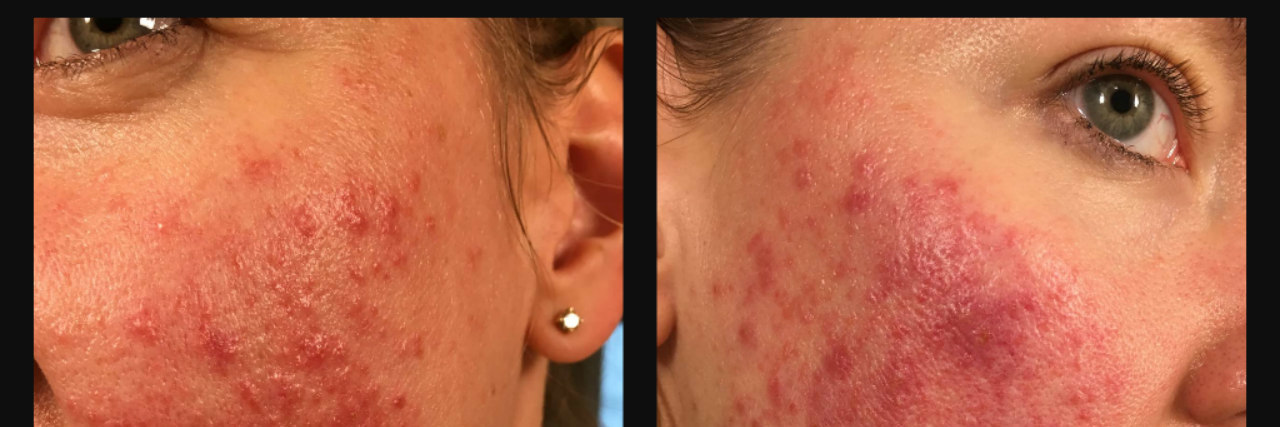“Do you have a good dermatologist? I mean a really good dermatologist?”
A female co-worker had pulled me aside, peered grimly at my face and waited for a response. Pride died quietly inside the caverns of my being.
My answer was short. “Yes, I do.”
I continued to work, hoping the subject would drop.
She pushed ahead. “I mean, how long is this going to go on?”
For a moment, I blinked in disbelief. A generous portion of tactless, insensitive gruel had been dropped on my plate.
This woman was unaware of the struggles I faced — antibiotics, gels, creams and endless doctor visits. She assumed a horrendous case of acne was to blame.
It was Rosacea; the manifestation of a deeper, more serious condition… Complex-PTSD.
According to The National Rosacea Society, emotional stress is reported to be one of the most common rosacea triggers.
My psyche had raged against my dermis. I was shocked.
I had managed to hide the emotional turmoil for more than a year. Buried deep inside an internal, seemingly dormant volcano, lava had quite literally bubbled to the surface. Eruption was imminent.
I remained polite, yet tight-lipped, when my co-worker pushed the name and number of her “qualified” dermatologist into my hand. I saved the tears for later.
This was not the first uncomfortable and intrusive encounter involving the state of my skin.
A previous visit with my dry cleaner had left me embarrassed and deflated. The clerk suggested numerous homemade remedies for my imperfect complexion. I wanted clean clothes, not unsolicited medical advice.
Complex-PTSD is an illness that can have numerous physical side effects. While outwardly battling visible symptoms, I secretly fought impalpable demons.
Rosacea caused embarrassment. I felt conspicuous and unsightly, especially when my job brought me into public view. I found it difficult to socialize and concentrate as people indiscreetly stared at the lumps and bumps on my fiery red cheeks.
While my pores continued to burst forth one heinous creation after another, my employer prepared for a company-wide award ceremony.
Annual sales ratios had been calculated. My department head called to inform me I ranked as a “top performer” in the retail division.
Forever the master of disguise, I excelled in the workplace. My personal life was an insufferable closet of secret skeletons.
Sales representatives belonging to this elite category would be honored at dinner party in a function hall. An appointment had been scheduled for a head shot, so my photo could be projected on a jumbo screen while I was presented with an award from the CEO.
To quote Alanis Morissette, “Isn’t it ironic? Don’t you think?”
Raw, red, covered in painful pustules, cysts, blotches and burst veins, I begged to be excused. I was mortified and refused all photographs. I looked like I had gone 10 rounds with a meat grinder.
Although I was allowed to provide my own “pre-rosacea” photograph, the ceremony was obligatory. I showed up, faced my co-workers, gracefully smiled and accepted the award.
Years of denial along with unmanaged, untreated symptoms were finally catching up. Other health problems quickly presented and it became even harder to maintain normal daily routines. Mentally and physically, I struggled to keep up the charade.
A month later, my doctors would not allow me to continue to work.
My face was sore, swollen and painful to touch but the emotional agony of mental illness was comparatively worse.
Eventually, I stopped caring about my appearance. Depression tightened its grip. I was numb to any concern about personal vanity.
I took steps to remedy my skin, but the rigorous undertaking of emotional healing was front and center.
Oftentimes, mental illness is an invisible illness… until it leaches out like infection from a wound. Disguised as other ailments, these maladies are warning signs of deeper, more complicated problems.
The mind/body connection is real. When you are mentally unwell, the physical wiring starts to short circuit.
Today, my rosacea has improved. Seeking mental wellness continues to be a bumpy and treacherous journey, much like an odyssey through a bubbling, cavernous lava field.
Once you accept the disturbance is there, navigating your internal volcano becomes clearer. Magma and ashes are part of the process. Even after eruptions, the mountain is usually still standing.
And, it helps to have a therapist… I mean a “really good” therapist.


